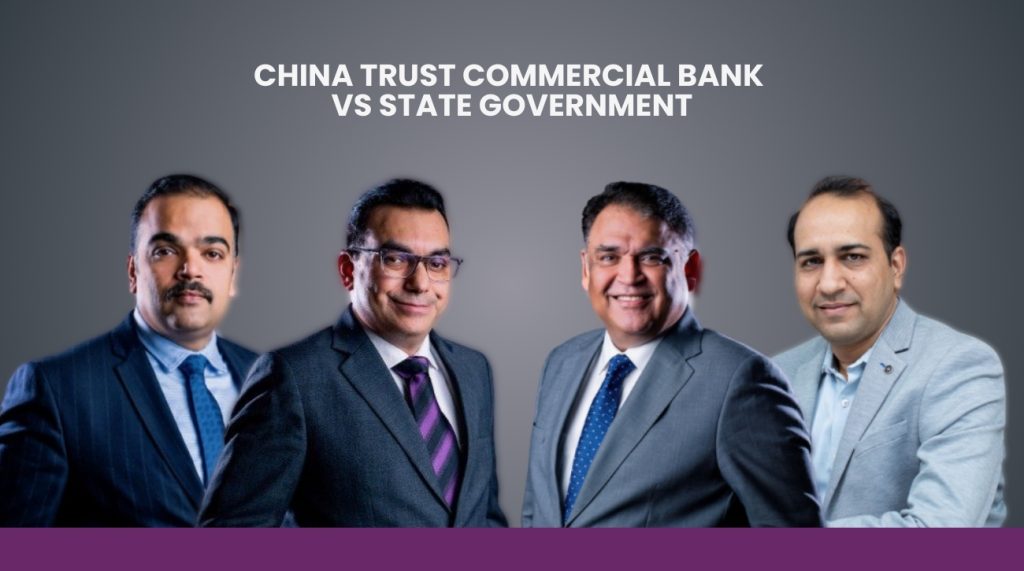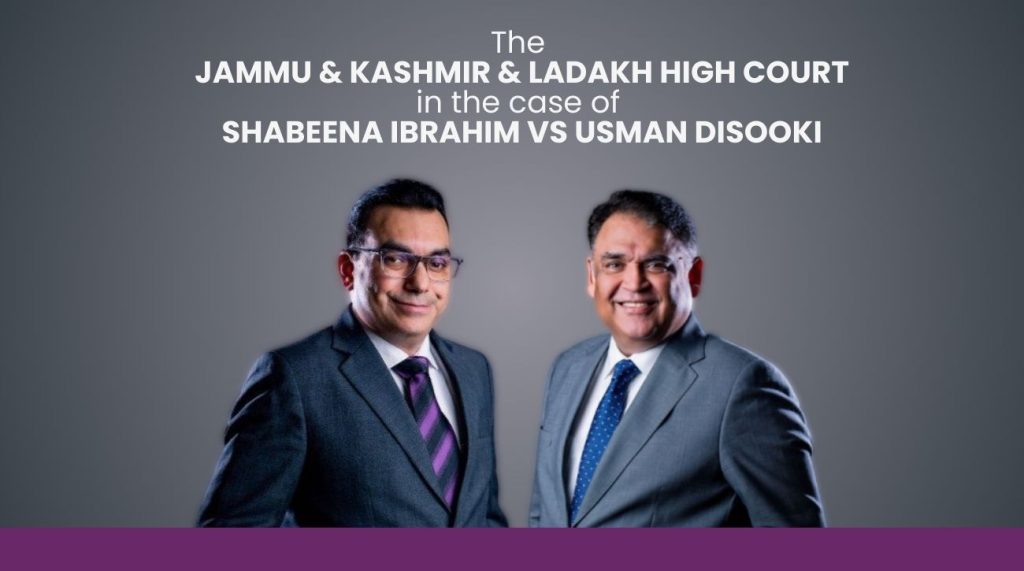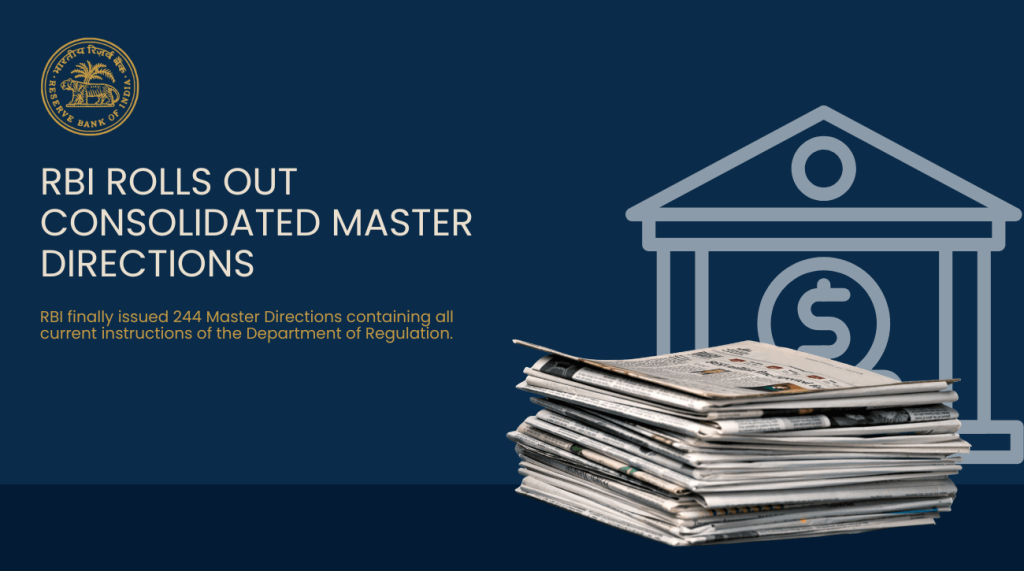Legal Updates (Sept 22 – 27, 2025)
Case Updates:
NCDRC cannot overstep its power & jurisdiction to travel beyond the pleadings in the complaint case and build up a new case on its own
The Supreme Court in the case of Deep Nursing Home vs Manmeet Singh Mattewal [2025 INSC 1094] dated September 09, 2025, has held that the National Consumer Dispute Redressal Commission (NCDRC) had wrongly awarded the compensation of Rs. 10 lacs by inventing a case of ‘antenatal negligence’ against the doctors, even though the original complaint was confined to ‘post-delivery negligence’. Accordingly, the Apex Court ordered the complainant to refund Rs. 10 lacs received by him as compensation.
The Apex Court reiterated that it would be impermissible to build a new case which was never pleaded in the pleadings/complaint. Since the NCDRC had gone beyond its jurisdiction when it faulted the doctor for alleged “antenatal negligence” despite the complainant’s case being restricted to “post-delivery negligence”, the Apex Court held that NCDRC exceeded its jurisdiction in awarding compensation for “antenatal negligence”.
The Apex Court also observed that the NCDRC clearly erred in building up a new case on his behalf and in pinning negligence and liability upon Dr. Kanwarjit Kochhar in the context of antenatal care and management of the patient, which was never the subject matter of the complaint case. In doing so, the NCDRC overstepped its power and jurisdiction as it was not for it to travel beyond the pleadings in the complaint case and build up a new case on its own.
The Court observed that once the NCDRC had held there was no negligence in the delivery or post-delivery treatment of the complainant’s wife, the matter had attained finality, especially since the complainants did not file a separate appeal, thereby closing the case.
Click on the link to read the original judgment
Thirty days’ timeline prescribed u/s 142(b) of the Negotiable Instruments Act, 1881 for filing a complaint is mandatory, unless there is a formal application seeking condonation of delay and a judicial order allowing it
The Supreme Court in the case of H. S. Oberoi Buildtech vs MSN Woodtech [SLP(Criminal) No. 2002 of 2025] dated September 09, 2025, quashed a cheque bounce complaint which was filed beyond the statutory 30-day limitation period, and held that the 30 days’ timeline prescribed under Section 142(b) of the Negotiable Instruments Act, 1881 (NI Act) for filing a complaint is mandatory, unless there is a formal application seeking condonation of delay and a judicial order allowing it.
The Apex Court observed that once the statute prescribes a mandatory time limit for filing a complaint, there cannot be any deviation from the same except when an application accompanying the complaint is filed seeking condonation disclosing reasons for the delay and even then it is obligatory on the part of the Court to take note of such filing beyond limitation and to consider the reasons disclosed independently and to come to a judicious conclusion that in the facts and circumstances of that case condonation is justified.
The Apex Court also observed that neither a delay condonation application was filed along with the complaint nor was there a judicial recording justifying the condonation, and held that there cannot be an automatic or presumed condonation when the complaint was filed beyond the time prescribed under the statute.
The Apex Court also held that even if for the sake of argument, it is assumed that the power under Section 142 of the NI Act exists for the Court to condone delay, the first requirement is that the Court has to take note of the fact that there is a delay and thereafter it had to go on the point whether the reasons which have been furnished by the complainant are sufficient to condone such delay and only then move on to take cognizance and proceed for issuing of summons.
Click on the link to read the original judgment
When the government is a party to arbitration, then delivery of an arbitral award to an official who is not aware of the proceedings is not a valid service for commencing the limitation period to challenge the award
The Supreme Court in the case of Motilal Agarwala vs State of West Bengal [2025 INSC 1062] dated August 28, 2025, has held that the delivery of the copy of the arbitral award should be made to the “party to the proceedings”, and if government is part to the proceedings than the delivery should be made to an individual who has the knowledge and is the best person to understand and appreciate an award and more particularly, to decide for its challenge.
The Apex Court has clarified that when the government or one of its departments is a party to arbitration, delivery of an arbitral award to an official who is not connected with or aware of the proceedings cannot be treated as valid service for commencing the limitation period to challenge the award.
The Apex Court said that the collection of the award’s copy by the Assistant Engineer was not proper delivery of a copy as mandated under the Arbitration and Conciliation Act, 1996, and the same cannot be treated as proper service for commencing the limitation for challenging the award. The Court added that the award should be received in the context of huge organisations by the person who has knowledge of the proceedings and who would be the best person to understand and appreciate the arbitral award.
Click on the link to read the original judgment
The filing of a counter-claim between co-defendants is not permitted under Order VIII Rule 6-A of the Civil Procedure Code
The Supreme Court in the case of Rajul Manoj Shah vs Kiranbhai Shakrabhai Patel [2025 INSC 1109] dated September 12, 2025, has held that a counter-claim under Order VIII Rule 6-A of the Civil Procedure Code, 1908 (CPC) can be filed only against the plaintiff, and the filing of a counter-claim between co-defendants is impermissible.
The Apex Court found that in the present case, the defendant no. 2 sought to raise a counter-claim primarily for the relief of specific performance of agreement executed in his favour by deceased original defendant no. 1 with respect to her undivided share in the suit property, by a direction to the Nazir, the substituted representative of defendant no. 1, to execute a sale deed in pursuance of the agreement to sell.
The Apex Court therefore observed that the relief of specific performance as sought to be raised by defendant no. 2 cannot be set up by way of a counter-claim since the same is not directed against the appellant/plaintiff, but is instead directed solely against the co-defendant. Essentially, the defendant no. 2 is disentitled to raise a prayer of specific performance by way of counter-claim.
Click on the link to read the original judgment
The offences of cheating and criminal breach of trust are mutually exclusive and cannot co-exist on the same set of facts
The Supreme Court in the case of Arshad Neyaz Khan vs State of Jharkhand [Special Leave Petition (Criminal) No.3606 of 2024] dated September 24, 2025, has held that criminal law cannot be used to settle personal scores or vendettas, and the criminal proceedings deserves to be quashed if the ingredients of cheating and criminal breach of trust were not made out.
The Apex Court held that the offence of cheating under Section 420 of the IPC/ Section 318 of BNS requires fraudulent or dishonest intention at the inception of the agreement, and mere failure to perform a promise does not constitute cheating. Further, the offence of criminal breach of trust under Section 406 of the IPC/ Section 316 of BNS requires proof of entrustment and dishonest misappropriation, which the complaint failed to establish.
Relying on the decision of Delhi Race Club (1940) Ltd. vs. State of U.P. (2024) 10 SCC 690, the Apex Court observed that the cheating and criminal breach of trust are mutually exclusive offences and cannot co-exist on the same set of facts. Thus, every act of breach of trust may not result in a penal offence unless there is evidence of a manipulative act of fraudulent misappropriation of property entrusted to him.
The case involved a simple transaction, i.e., an Agreement for Sale of property, where the appellant-accused received an advance payment but did not execute the sale or return the money for eight years. The complainant filed a case alleging both cheating and criminal breach of trust; however, the High Court refused to quash the criminal cases.
Click on the link to read the original judgment
Dual recovery is not permitted once an investor of the Corporate Debtor has received an amount under the Settlement Agreement and has given an unconditional undertaking to forgo all claims under the Resolution Plan
The NCLAT, New Delhi, in the case of Shobhana Thakkar vs Monitoring Committee of Ashiana Landcraft Realty Pvt Ltd. [Company Appeal (AT) (Insolvency) No. 2156 of 2024] dated August 20, 2025, has held that once an investor of the Corporate Debtor has received an amount under the Settlement Agreement and has given an unconditional undertaking to forgo all claims under the Resolution Plan, they are barred from claiming the same amount under the Resolution Plan, as such dual recovery is impermissible.
The NCLAT observed that the investors were given the choice to opt either for the settlement and file an undertaking to forgo all the claims under the Resolution Plan or forfeit rights under the Settlement Agreement and claim rights under the Resolution Plan, but not both. Since the Appellants are trying to claim the amount both under the settlement agreement and the resolution plan, they having received their dues under the settlement agreement and given an unconditional undertaking to forgo all the claims under the Resolution Plan, such dual recovery is impermissible.
Approval of a resolution plan can’t be interfered with merely on the grievance of a single financial creditor regarding improper asset valuation of the corporate debtor
The NCLAT, New Delhi, in the case of Central Bank of India vs. Bijendra Kumar Jha [Company Appeal (AT) (Insolvency) No. 713 of 2025] dated August 18, 2025, has held that approval of a resolution plan cannot be interfered with merely on the grievance of a single financial creditor regarding improper asset valuation of the corporate debtor, when the valuer has, in fact, duly considered all assets and submitted its report.
The NCLAT found it evident from the third valuer’s report that the MoU and the allotment letter for 66 units were considered, and that these flats were given to the contractors against outstanding dues; hence, they were rightly excluded from the valuation of the corporate debtor. The Tribunal held that the valuers appointed in the CIRP process are the registered valuers who are experts in the job, and valuations given by them are not to be lightly interfered with by the Adjudicating Authority in the exercise of judicial review.
The NCLAT further observed that in the present case, the CoC, in its commercial wisdom, has approved the Resolution Plan. The valuation report, as required by Regulation 35 of the CIRP Regulations, is shared with all members of the CoC, and all members of the CoC have deliberated on the valuation report and approved the plan. It also held that the Appellant, as a dissenting financial creditor, cannot achieve what was not secured through voting.
The failure of the Resolution Professional to individually inform the homebuyers about the insolvency proceedings as mandated under Regulation 6A of the CIRP Regulations, 2016, vitiates the entire proceedings
The NCLAT, New Delhi, in the case of Bharti Goyal vs. Hector Realty Venture Pvt Ltd. [Company Appeal (AT) (Ins.) No. 1545 of 2024 & I.A. No. 5594 of 2024] dated August 20, 2025, has held that the failure of the Resolution Professional (RP) to individually inform the homebuyers about the insolvency proceedings as mandated under Regulation 6A of the CIRP Regulations, 2016, so they could file their claims on time, goes against the spirit of the IBC and vitiates the entire proceedings especially during Covid Pandemic.
The NCLAT noted that both the CIRP initiation and claims invitation coincided with the onset of the COVID-19 pandemic. In such circumstances, newspaper notices were not an effective way to inform the creditors to submit their claims, and it was unreasonable to expect layperson homebuyers to trace the public announcements without personally serving each of them. The RP under Regulation 6 of the CIRP Regulations was duty-bound to identify and contact all the creditors with due diligence and ensure a fair opportunity to all of them to submit their claims.
The NCLAT further observed that Regulation 6A now mandates the RP to individually notify all the creditors via post or electronic means by using the latest corporate debtor’s records. In the present case, the ex-management of the Corporate Debtor settled dues only with those few homebuyers whose claims were filed, while leaving out others from the same class of creditors. Such selective treatment of creditors within the same class is against the basic principles of the IBC and cannot be accepted. Regulation 6A, therefore, aims to ensure that dispersed retail allottees are informed of the insolvency proceedings and not excluded for failing to submit their formal claims.
The NCLAT also held that Section 12A is not a mere procedural formality; rather, it embodies a substantive protection against unilateral withdrawal of CIRP once collective rights have crystallized. The mandatory requirement of CoC approval is the only legally sanctioned exit after CIRP commences. Any deviation from this scheme, especially one procured through misrepresentation, is per se fraudulent and liable to be set aside.
Regulatory Updates: SEBI & RBI
SEBI joins hands with CBDT to simplify Security Transfers from Nominee to Legal Heirs
The Securities and Exchange Board of India (SEBI) vide its Circular No. SEBI/HO/MIRSD/MIRSD-PoD/P/CIR/2025/130 dated September 19, 2025, has simplified the process of transferring securities from a nominee to a legal heir, effective from January 1, 2026. The change aims to address a long-standing issue where a nominee, acting as a trustee, was incorrectly assessed for capital gains tax during the transfer, despite such transmissions being exempt under the Income Tax Act, 1961.
This led to inconvenience and the need for nominees to claim tax refunds. To resolve this, an SEBI-formed working group, in coordination with the Central Board of Direct Taxes (CBDT), recommended a standardized solution. Reporting entities, including Registrars to an Issue and Share Transfer Agents (RTAs), listed issuers, and depositories, are now directed to use a specific reason code, “TLH” (Transmission to Legal Heirs), when reporting these transactions to the CBDT.
This measure is intended to ensure the correct application of tax laws and streamline the process, protecting investor interests and promoting market development.
Click here to read the original circular
SEBI updates Social Stock Exchange Framework
The Securities and Exchange Board of India (SEBI) vide its Circular No. SEBI/HO/CFD/CFD-PoD-1/P/CIR/2025/129 dated September 19, 2025, has updated its framework for the Social Stock Exchange (SSE) based on recommendations from the Social Stock Exchange Advisory Committee (SSEAC) and public feedback.
The amendments, effective immediately, modify existing regulations on capital issuance and listing requirements. The circular specifies that not-for-profit organizations (NPOs) seeking to register with the SSE must be registered in India under one of several legal forms, such as a charitable trust or a Section 8 company. It also revises the annual disclosure requirements for NPOs, mandating detailed reports on governance, financials, and social outreach.
Furthermore, social enterprises that raise funds via the SSE are now required to submit an Annual Impact Report (AIR) to the exchange, which must be assessed by certified Social Impact Assessors. These changes are intended to improve transparency, standardize reporting, and provide more comprehensive information to stakeholders.
Click here to read the original circular
RBI mandates stringent due diligence obligations for Payment Aggregators to verify merchant identities and backgrounds
The Reserve Bank of India (RBI) vide its Notification No. RBI/DPSS/2025-26/141 dated September 15, 2025, has issued the Reserve Bank of India (Regulation of Payment Aggregators) Directions, 2025, effective immediately. These directions consolidate previous guidelines for Payment Aggregators (PAs), including those handling proximity/face-to-face payments and cross-border transactions.
After incorporating feedback from stakeholders like PAs, banks, and industry associations, the new framework details the authorization process, due diligence requirements for merchants, and permissible operations in escrow accounts.
Key aspects of the Directions include a rationalized definition of various PA categories, updated authorization procedures for both bank and non-bank entities, and stringent due diligence obligations for PAs to verify merchant identities and backgrounds.
The regulations also specify capital requirements, with non-bank PAs needing to achieve a minimum net-worth of ₹25 crore by their third financial year. Furthermore, robust governance, dispute management, and cybersecurity frameworks are mandated. The new directions aim to enhance the security and efficiency of digital payment systems while ensuring customer protection and regulatory compliance.
Click here to read the original notification



